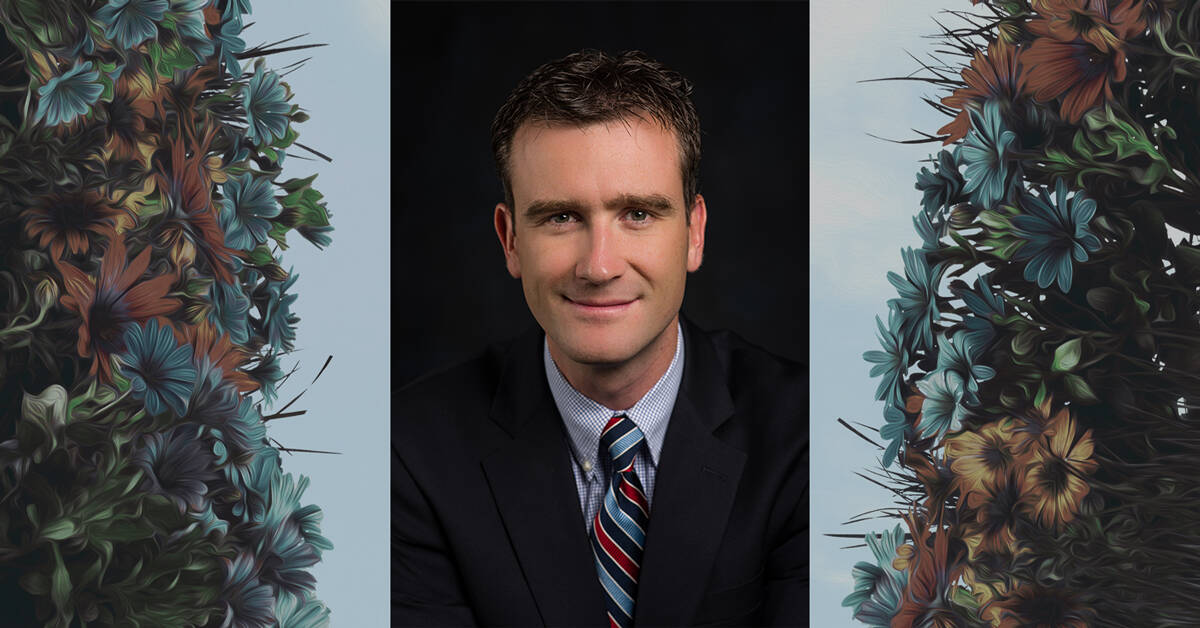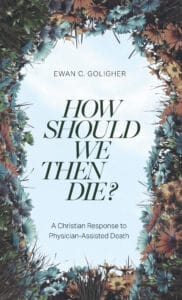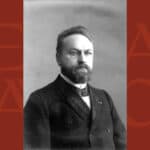
In our interview below, we talk with Ewan C. Goligher about his new book How Should We then Die? A Christian Response to Physician-Assisted Death.
Ewan C. Goligher (MD, University of British Columbia; PhD, University of Toronto) is assistant professor of medicine at the University of Toronto and has published over 100 papers and several book chapters. As a physician practicing critical-care medicine, he is regularly involved in helping patients and families navigate difficult decisions about medical care at the end of life.
Lexham Press: What is the story behind How Should We then Die? A Christian Response to Physician-Assisted Death?
Ewan C. Goligher: In 2015, the practice of medicine in Canada changed dramatically. The legalization of physician-assisted death dramatically reoriented medicine towards personal autonomy over against the traditional value of the sacredness of life. Whereas refusing to end a patient’s request for death had always been seen as a virtuous commitment to professionalism, it would now be seen as a vicious and selfish imposition of personal values on the patient. What explanation could I give to account for my opposition to this sweeping change in medical ethics? This question became especially urgent when court decisions made it clear that practicing physicians would have no recourse to their religious beliefs to defend their refusal to participate in the new assisted death regime.
This book is the product of years of wrestling with this question. In writing this book, I wanted to tackle the fundamental question: why is it wrong to intentionally cause the death of an innocent human person, even when they want their life to be ended? Along the way, I had to work out my convictions on how Christians should evaluate moral questions. I learned that, in matters of ethics, reason reflecting on nature works in harmony with Divine revelation, and that Christians can call upon the insights of general revelation (reason and nature) to buttress and make sense of the deliverances of special revelation (Scripture).
LP: What is your book’s basic thesis?
Goligher: The basic thesis of this book is that physician-assisted death is fundamentally misguided and deeply unethical. It undermines human value by regarding the person as if they have only extrinsic, conditional value. Furthermore, in purporting to offer death as therapy, it presumes to know what it is like to be dead; it is therefore an act of deep faith in one’s presumptions about death. Ultimately, the desire for death is motivated by the loss of meaning in the face of suffering; the true solution to the problem of grievous and irremediable suffering is not death, but the transcendent meaning and purpose offered us in the gospel.
LP: What contribution do you hope to make with your book?
Goligher: I hope this book serves as a model for how we can combine insights drawn from reason reflecting on nature with the deep truths of Scripture to understand how we are to go about loving God and neighbour. In particular, I hope this book helps us to see more clearly the true intrinsic, incalculable, and unconditional value of our neighbour, especially those who are suffering and dependent, so that we will come to intuitively reject physician-assisted death as an obvious violation of that value.
LP: Describe a particularly surprising or enjoyable aspect in your writing process.
Goligher: My favourite chapter to write was Chapter 5, Escape from Despair. In the course of my reading and research for the book, I came to see that the problem of meaning lies at the root of the question of physician-assisted death. The desire for death in the face of suffering expresses the despair one feels over the absurdity of life when one can no longer invent a meaning for oneself. Our culture is starved for meaning. In some sense, physician-assisted death is just a symptom of this much deeper cultural despair.
And this makes the gospel so precious, for the eternal life that Jesus offers us is not only redemption from sin, but salvation from despair. Christ’s victory over sin and death signifies deliverance both from judgment and from futility. United with Christ we find a truly meaningful existence—thus John 17:3-5: “And this is eternal life, that they know you, the only true God, and Jesus Christ whom you have sent. I glorified you on earth, having accomplished the work that you gave me to do. And now, Father, glorify me in your own presence with the glory that I had with you before the world existed.”
LP: Share with us something surprising about yourself that only your friends would know.
Goligher: My primary academic passions are the physiology of respiratory muscle function (i.e. how breathing works; critical in patients with respiratory failure) and applied Bayesian statistics (an intuitive approach to data analysis). Medical ethics is something I stumbled into almost by accident. Outside of work I love to swim and sail. I love being on the water.







